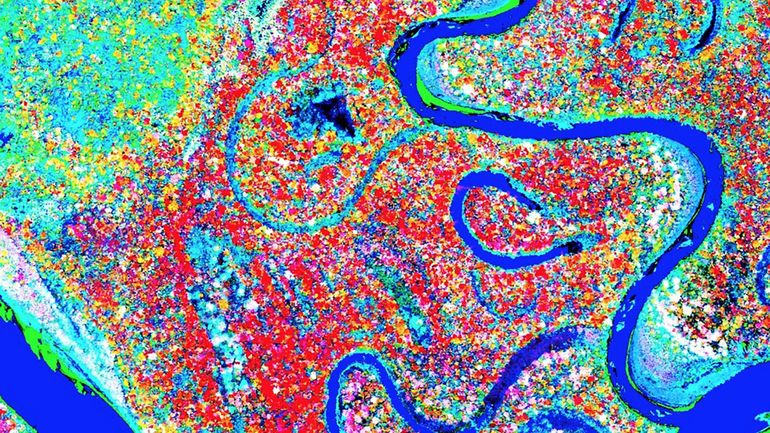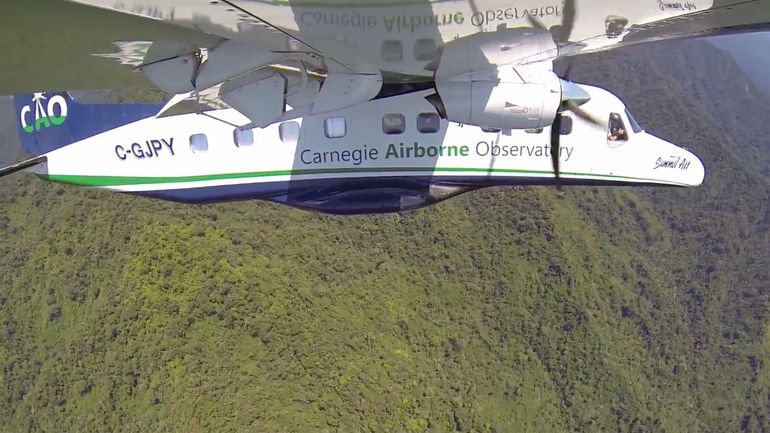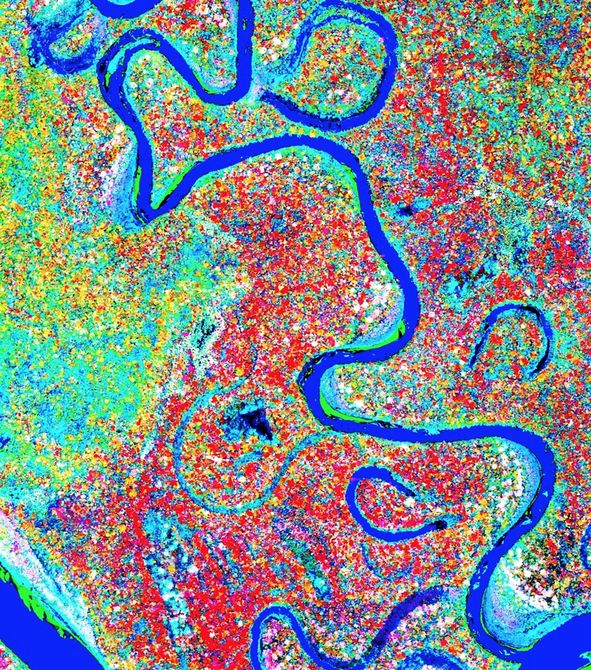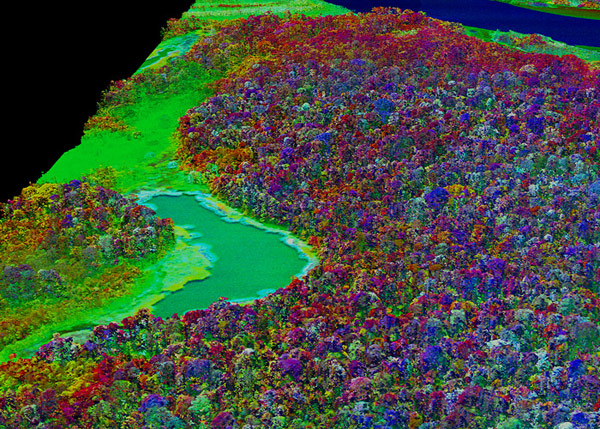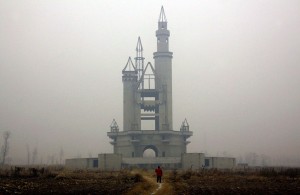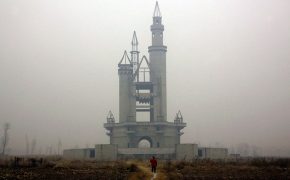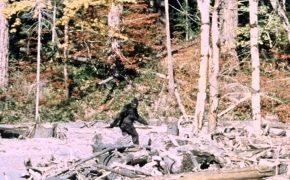The Chemistry Of The Amazon Mapped
Scientists from the Carnegie Airborne Observatory have done something pretty impressive. They have mapped the chemical content of the Amazon basin and its ancient forests. It’s the largest project of its type, and as an added bonus the images they’ve collected are beautiful.
The Amazon is an amazing place, as I’m sure you’ve heard. It covers 5 million square miles of land, millions of species call the place home and it has been in existence for at least 55 million years. The forest is built upon layers of geological history and the Carnegie group wanted to find out whether its ancient pedigree affected the chemistry of the plant life there.
Each plant uses a variety of chemicals for a variety of reasons: to defend against herbivores, harvest light and attract pollinators. The Carnegie group expected the variety but were surprised by the order they found. Carnegie’s Greg Asner explains:
Our findings tell us that lowland Amazon forests are far more geographically sorted than we once thought. It is not simply a swath of green that occurs with everything strewn randomly. Place does matter, even if it all appears to be flat and green monotony at first glance.
This glimpse of the chemistry of the Amazon’s was made using a laser scanner and a high-fidelity imaging spectrometer. It’s the first time any forest’s chemistry has been mapped in such detail. Scientists hope that these images will teach us more about the evolution and future survival of the lungs of planet earth.
Carnegie’s Greg Asner:
Looking at the lowland Amazon with this kind of detail, you can see back in time, from the way the topography was shaped millions of years ago, which still affects soils and mineral availability today, to the way that different species evolved to take advantage of this great variety of subtly changing conditions. And we can peer into the future and see how quickly human activity is changing the kaleidoscope of diversity that has been uniquely shaped over millions of years.
MORE:
HAWAII: EXTINCTION CAPITAL OF THE WORLD

